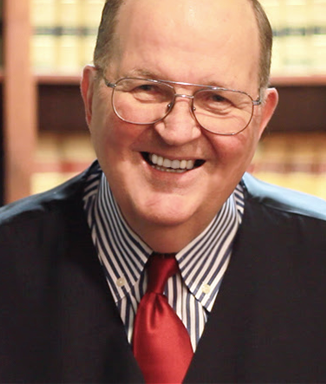Largest Virginia Informed Consent Case at the Time (Part 1)
This is the story of a case I handled around 1985 in Norfolk, Virginia regarding a gentleman we will call Mr. Jones.
Mr. Jones was about 50 years old and worked for the Norfolk school system as a maintenance man and janitor. On Sundays he was a minister at a church.
Mr. Jones started having some problems with his neck and his back. He went to see a doctor who mainly did work as an orthopedic surgeon but was also a neurosurgeon. He talked to Mr. Jones and recommended to Mr. Jones that he have an operation on his neck, but the doctor did not adequately explain the risks of the surgery.
One day Mr. Jones was in the hospital on a preliminary visit when they were trying to make the decision on if he was going to have the operation. As Mr. Jones sat talking to his daughters in the hospital the doctor happened to come in and they started discussing the risks of the surgery. The doctor was really selling the operation and one of the daughters asked “What are the chances that things could go wrong and something could happen and our father might become paralyzed?” The doctor said there is almost no risk 1-2% at most. She said “Would you mind writing that on this napkin?” She had a napkin from the food service in the hospital and the doctor wrote a note for her and she took the note and put it in her bible that she was carrying.
In any event they went ahead with the operation and Mr. Jones was paralyzed from his waist down as a result of the operation. A very serious injury obviously.
When suit was filed the case came up for trial in Norfolk Circuit Court. The jury pool was sitting in one room and there were jury panels from six different courtrooms so there were a large number of jurors. All the jurors that had been called that day were sitting in the room waiting to be assigned to different cases.
One of the jurors had a heart attack and the doctor that was being sued in the Mr. Jones case went over to the jury room and tried to administer help to the juror who had a heart attack, and as it turned out the juror died, but the entire jury panel had seen this doctor helping the juror and, as a consequence of that, the trial was continued because it was felt that the jury pool had been poisoned by the fact that the doctor had looked so good in front of the jury by trying to rescue the juror.
When Mr. Jones was told that the case had to be continued he told us that he didn’t mind because he had been talking to God and God had told him that today was not a particularly good day to try the case. So the case was continued about several months and it came back to court and Mr. Jones was asked if he had talked to God about the trial going forward on that day. He said that he had and that everything was good, that God was good for that day.
